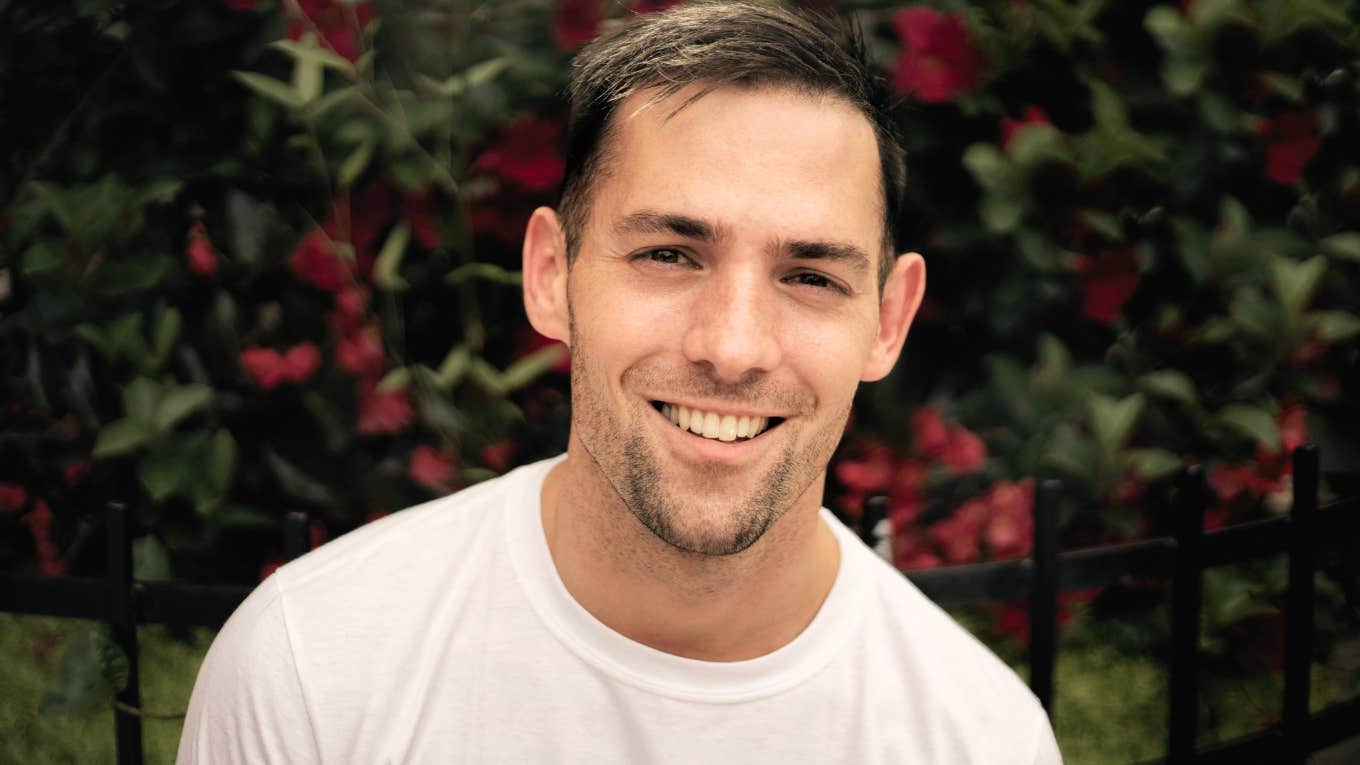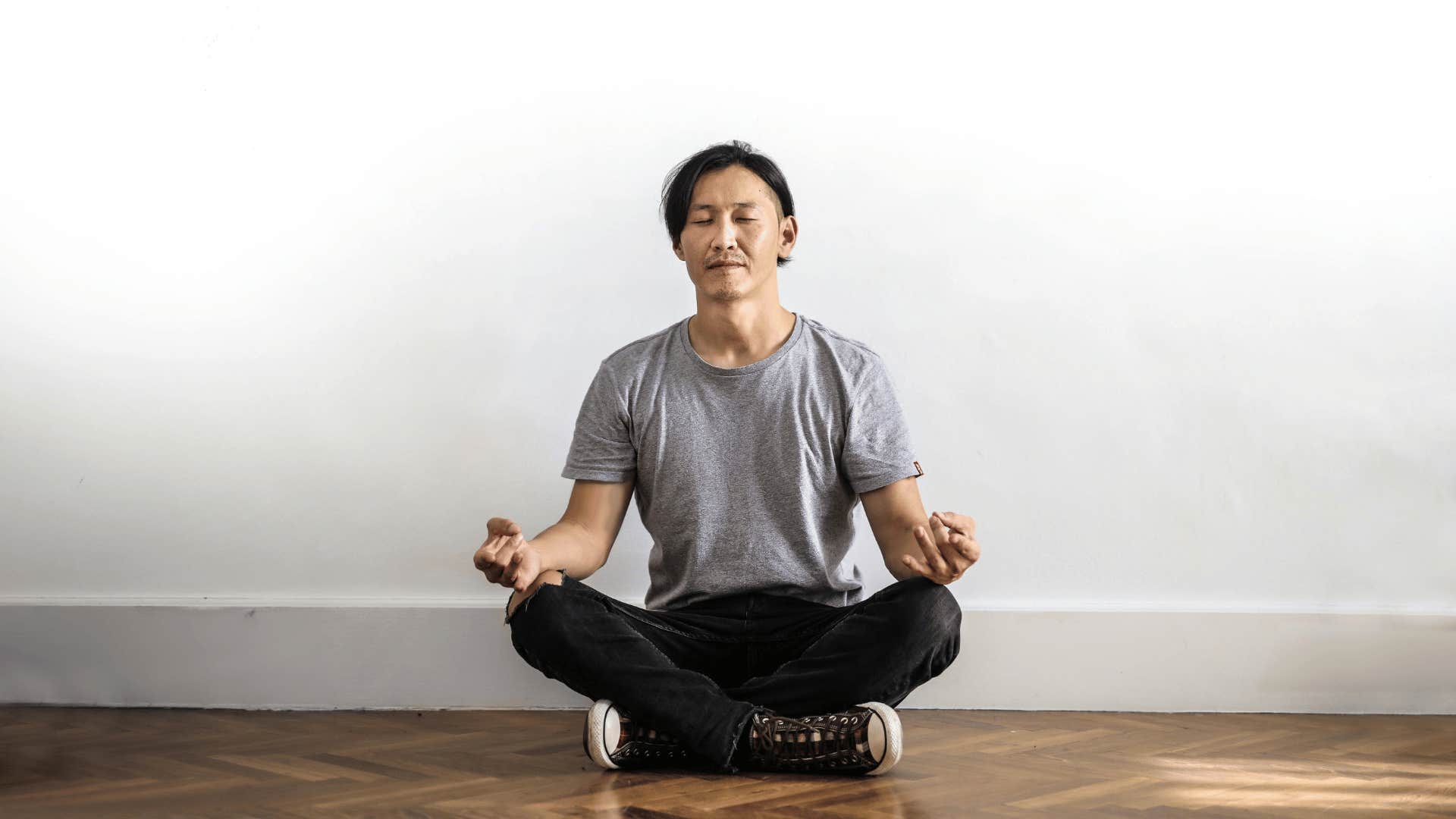Psychology Says If You Can Master These 9 Skills, You'll Be The Calmest Person In The Room
Use these things if your anxiety is preventing you from enjoying life.
 Nicholas Swatz | Pexels
Nicholas Swatz | Pexels I was a pretty nervous dude in my youth. But I’ve put a lot of time and energy into calming down. Some strategies didn’t work at all and made me more uptight. But a lot did help.
Mental wellness is maintained through sound physical health and thought management, which is developed over the long term as a practice. I combined my fascination for human behavior and my curiosity for living a calmer, more relaxed life.
If you can master these nine skills, you'll be the calmest person in the room:
1. Focusing only on pursuits that bring joy to your life
 Ivan Samkov | Pexels
Ivan Samkov | Pexels
When I found myself in fascinating work like drawing and writing (and writing stuff I actually cared about), I was in flow more of the time. This profoundly affected stilling my mind and transferring those high-energy effects to all areas of life.
Focusing on activities and experiences that bring you joy and a sense of fulfillment, often described as "things that bring you to life," can significantly improve your overall well-being, leading to increased happiness, higher life satisfaction, improved mental health, and greater motivation to achieve your goals. According to a 2019 study, it fosters a more positive and engaged lifestyle by aligning your energy with what truly matters to you.
2. Complaining less
 Andrea Piacquadio | Pexels
Andrea Piacquadio | Pexels
When we stop focusing on what we dislike around us, practice non-resistance, and just take action, we’re literally empowering ourselves.
According to research published in 2015 in the European Journal of Work and Organizational Psychology, complaining makes you feel worse — for days.
"Discussing events immediately during or after they occur forces the brain to re-live or 'rehearse' the negative emotional response," the researchers write. "This creates a stronger association in memory, exaggerating the influence of the emotional episode."
3. Taking your thoughts less seriously
 Yan Krukau | Pexels
Yan Krukau | Pexels
I wish I had known earlier how much nonsense is contained in thoughts. Too many of us take them as gospel truths on how life should be lived.
Thoughts are just approximations, and not every single one of them needs to be listened to. Instead, I incorporated more walking and weight-lifting into my week.
When I exercise, oxygen flows more effectively through my bloodstream. Endorphins increase. My mood lifts. A week without exercise makes my body feel stagnant, and that’s when stress and anxiety arise.
If people embrace the concept of stress, it can make them stronger, brighter, and happier, a Stanford expert says. “Stress isn’t always harmful,” said Kelly McGonigal, a business school lecturer at Stanford University and program developer for the Stanford Center for Compassion and Altruism Research and Education. “Once you appreciate that going through stress makes you better at it, it can be easier to face each new challenge.”
The Stanford News Service interviewed McGonigal, who recently published a new book, The Upside of Stress, on the subject. The initial research showed that viewing stress as a helpful part of life, rather than as harmful, is associated with better health, emotional well-being, and productivity at work – even during periods of high stress.
4. Avoiding looking for validation
 Vinicius Wiesehofer | Pexels
Vinicius Wiesehofer | Pexels
This need was rooted in a lie: that other people had the power to raise my self-esteem.
That’s a lie, and you need to stop thinking that. The only validation you need is the compassion that arises naturally for yourself and others when you care less.
5. Thinking less about yourself
 Jose Ricardo Barraza Morachis | Pexels
Jose Ricardo Barraza Morachis | Pexels
I like to take care of my appearance, my general health, my hygiene, and buy decent clothes and that kind of stuff. That’s essential self-care.
But beyond that, I make a point to THINK less of myself. When there’s less of me to think of, my self-consciousness drops and my focus redirects to the stuff worth thinking about:
‘What can I create, and how can I help other people?’
A Vagaro survey found that 67% of respondents said self-care boosted their productivity. In comparison, 64% of respondents said self-care boosted their self-confidence.
6. Accepting your flaws
 The Lazy Artist Gallery | Pexels
The Lazy Artist Gallery | Pexels
It’s possible. This starts with forgiving yourself for what you perceived as ‘bad’ in your past. It wasn’t bad.
You just apply that thinking to what happened, making your present self feel terrible. You did what you knew to be right at the time. Forgive yourself and move on. That’s a huge weight off your back. Next, accept yourself. It is what it is. Move on.
7. Understanding the mind/tension connection
 Andrea Piacquadio | Pexels
Andrea Piacquadio | Pexels
This was huge for me. The more we have on our minds, the more stress we feel. You know this because you feel awful when the volume of thinking is high, like when you worry.
Most people attempt to use their thoughts to calm down. They try to think positive thoughts. They believe it’s relieved at the mindset level.
No. No, it isn’t. The gateway to true calm is accessed through the physical: the body. Relax the body and your mind stills.
2017 research demonstrated a strong connection between the mind and physical tension, highlighting how psychological stress and emotional states can manifest physically through muscle tension, particularly in the neck, shoulders, and jaw.
8. Seeing the connection between consuming garbage and feeling terrible
 Andres Ayrton | Pexels
Andres Ayrton | Pexels
I still often eat garbage. But I now know to expect to feel like the garbage I eat when I do so.
Understanding this makes all the difference. I no longer need to worry about where my ‘depression’ comes from if I’ve just spent the last week smoking, watching explicit content, and eating processed foods.
Research by Srinivas University indicates that frequent consumption of fast food can have significant negative impacts on both mental and physical health, primarily due to its high levels of saturated fats, refined sugars, and processed ingredients, which can contribute to inflammation, weight gain, and increased risk of chronic diseases, including potential links to depression and anxiety disorders.
9. Taking full responsibility for yourself
 LinkedIn Sales Navigator | Pexels
LinkedIn Sales Navigator | Pexels
Many people have questioned this move. They say: ‘I can’t be held responsible for the fighting in some distant land.’
Yes, yes, you can. How? Because your mind creates your entire reality. This is powerful because if we take responsibility for what isn’t working, we’re in the driving seat of our lives.
When we don’t take our legitimate share of responsibility, we risk losing a sense of our power or sense of control over our actions. This sense of control over what we do and don’t do is called “a sense of agency” or, as psychologist James W. Moore has described it in a 2016 article published in Frontiers in Psychology, a “feeling of being in the driving seat when it comes to our actions.”
Research published in Clinical Psychology Review in 2023 has shown that a sense of agency provides us with a greater sense of competence, even when it involves taking responsibility for mistakes or negative behaviors.
Alex Mathers is a writer and coach who helps you build a money-making personal brand with your knowledge and skills while staying mentally resilient.

